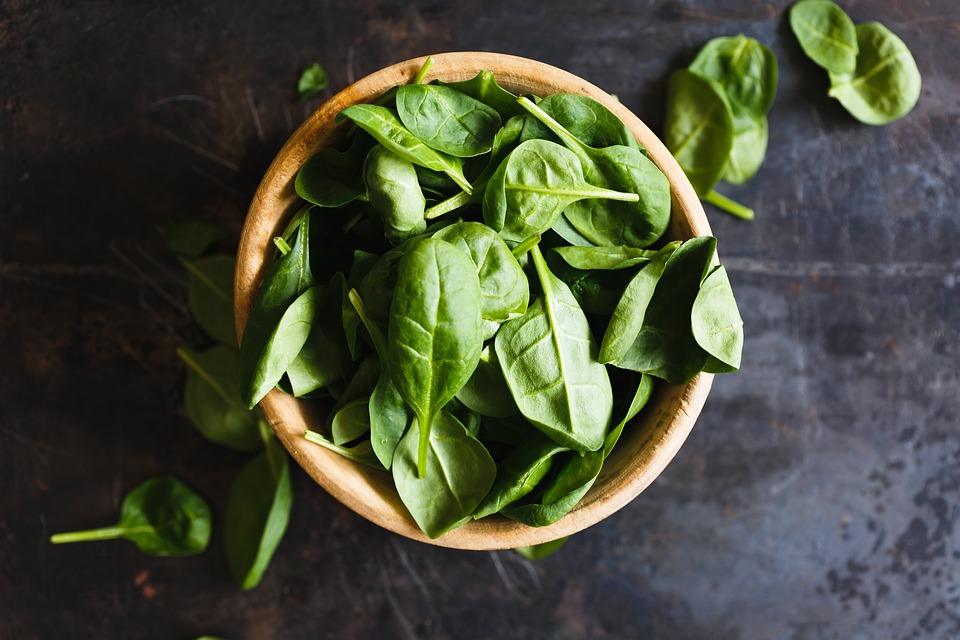the Relationship Between gastric sleeve Surgery and Liver Problems
Gastric sleeve surgery, also known as sleeve gastrectomy, is a popular weight loss procedure that involves reducing the size of the stomach. While this surgery has proven to be effective in helping individuals achieve significant weight loss, it is important to consider the potential impact it may have on the liver. In this article, we will explore the relationship between gastric sleeve surgery and liver problems, shedding light on the factors that can contribute to such issues and the steps that can be taken to prevent and manage them.
Understanding the Role of the Liver
Before diving into the potential liver problems associated with gastric sleeve surgery, let us first understand the crucial role the liver plays in our bodies. The liver is the largest internal organ and performs numerous vital functions, including detoxification, metabolism, and storage of nutrients. It also produces bile, a substance that aids in digestion. Given its multifaceted functions, maintaining a healthy liver is crucial for overall well-being.
Possible Liver Problems After Gastric Sleeve Surgery
While gastric sleeve surgery has proven to be a highly effective weight loss procedure, it is not without its potential risks. One of the concerns that have emerged is the possibility of liver problems post-surgery. Several factors contribute to these issues, including the rapid weight loss experienced by patients and the presence of pre-existing liver conditions. Let us delve into some of the specific problems that can arise:
1. Non-Alcoholic Fatty Liver Disease (NAFLD)
Non-alcoholic fatty liver disease is a condition characterized by the accumulation of fat in the liver. It is commonly associated with obesity, insulin resistance, and metabolic syndrome. Gastric sleeve surgery often leads to rapid weight loss, which can improve NAFLD. However, in some cases, the sudden reduction in fat tissue can cause an increase in liver inflammation, leading to a transient worsening of NAFLD before improvement.
2. Liver Steatosis
Liver steatosis, also known as fatty liver, is another potential problem following gastric sleeve surgery. Similar to NAFLD, it involves the accumulation of fat in the liver. The rapid weight loss associated with the surgery can exacerbate this condition initially. However, with proper management, including dietary adjustments and regular exercise, liver steatosis can be effectively controlled.
3. vitamin and Nutritional Deficiencies
Following gastric sleeve surgery, the reduced stomach size limits the amount of food that can be consumed, potentially leading to vitamin and nutritional deficiencies. These deficiencies can impact liver health, as the liver relies on various vitamins and nutrients to perform its functions optimally. Regular monitoring and appropriate supplementation can help mitigate the risk of liver problems associated with nutritional deficiencies.
4. Gallstones
Gallstones, which are hardened deposits that form in the gallbladder, can also be a concern after gastric sleeve surgery. Rapid weight loss can increase the risk of developing gallstones, as the body metabolizes fat more efficiently during this period. The presence of gallstones can lead to liver problems if they obstruct the bile ducts, causing inflammation or infection. In severe cases, surgical intervention may be necessary to remove the gallbladder.
5. Liver Injury During Surgery
Although rare, liver injury can occur during gastric sleeve surgery. This can be a result of accidental damage to the liver during the procedure. Skilled surgeons take utmost care to prevent such injuries by employing meticulous surgical techniques. However, it is essential to be aware of this potential risk and choose an experienced surgeon who prioritizes patient safety.
Prevention and Management Strategies
While the potential liver problems associated with gastric sleeve surgery may seem concerning, there are several preventive measures and management strategies that can be implemented to minimize risks. Here are some key considerations:
– Preoperative evaluation: Thorough preoperative assessments, including liver function tests and imaging studies, can help identify any pre-existing liver conditions that may require attention before surgery.
– Gradual weight loss: Opting for a more gradual weight loss approach post-surgery can reduce the strain on the liver and minimize the risk of exacerbating liver problems.
– Balanced diet and supplementation: Following a well-balanced diet, rich in essential nutrients, and incorporating appropriate supplements can help prevent nutritional deficiencies and promote liver health.
– Regular monitoring: Consistent monitoring of liver function through blood tests and imaging studies enables early detection of any potential liver problems, allowing for prompt intervention and management.
– Lifestyle modifications: Incorporating regular exercise into daily routines and maintaining a healthy lifestyle not only aids in weight management but also supports liver health.
conclusion
Gastric sleeve surgery is an effective weight loss procedure that can significantly improve the quality of life for individuals struggling with obesity. While the surgery itself does pose some potential risks to liver health, proper preoperative evaluation, postoperative care, and lifestyle modifications can help mitigate these concerns. It is essential to consult with a qualified healthcare professional to discuss individual risks and develop a personalized plan for a successful outcome. By considering the relationship between gastric sleeve surgery and liver problems, patients can make informed decisions and prioritize their long-term health.
Common Inquiries Regarding Gastric Sleeve Liver Problems
What are the common liver problems associated with gastric sleeve surgery?
Liver problems can occur as a result of gastric sleeve surgery due to various factors. Here, we will discuss the most common liver issues that can arise post-surgery and provide important information about them.
1.
What is fatty liver disease and how can it be related to gastric sleeve surgery?
Fatty liver disease, also known as hepatic steatosis, is a condition characterized by the buildup of fat in the liver cells. It can be associated with gastric sleeve surgery due to the significant weight loss that occurs after the procedure. When the body rapidly sheds excess pounds, the liver starts to break down stored fats, which can overwhelm its capacity and lead to the accumulation of fat in the liver.
Important information:
– Fatty liver disease can be asymptomatic or may present with symptoms such as fatigue, abdominal discomfort, and jaundice.
– Gastric sleeve surgery can contribute to the improvement or resolution of fatty liver disease in many cases.
– However, it is crucial for patients to maintain a healthy lifestyle, including a balanced diet and regular exercise, to prevent the recurrence or progression of this condition.
2.
What is non-alcoholic steatohepatitis (NASH) and how does it relate to gastric sleeve surgery?
Non-alcoholic steatohepatitis (NASH) is a more severe form of fatty liver disease characterized by inflammation and liver cell damage. This condition can be associated with gastric sleeve surgery, particularly in patients who have pre-existing fatty liver disease. The combination of rapid weight loss and underlying liver condition can contribute to the development or progression of NASH.
Important information:
– NASH can lead to complications such as fibrosis, cirrhosis, and even liver failure in severe cases.
– Regular monitoring of liver function and imaging studies may be necessary to detect and manage NASH.
– Lifestyle modifications, including a healthy diet, weight management, and exercise, are essential in preventing and managing NASH after gastric sleeve surgery.
3.
Can vitamin deficiencies contribute to liver problems after gastric sleeve surgery?
Yes, vitamin deficiencies can contribute to liver problems after gastric sleeve surgery. The procedure involves reducing the size of the stomach, which can limit the amount of food intake and, consequently, the absorption of essential nutrients. Inadequate intake or absorption of vitamins can lead to various liver-related issues.
Important information:
– Vitamin deficiencies commonly associated with gastric sleeve surgery include vitamin D, vitamin B12, and iron.
– These deficiencies can lead to liver disorders such as hepatocellular injury and abnormal liver function tests.
– Regular monitoring of vitamin levels and appropriate supplementation are crucial to prevent and manage liver problems related to nutrient deficiencies.
4.
What is portal hypertension, and how can it be linked to gastric sleeve surgery?
Portal hypertension is a condition characterized by increased blood pressure in the portal vein, which carries blood from the digestive organs to the liver. While not directly caused by gastric sleeve surgery, it can be linked to liver problems that may arise after the procedure. Rapid weight loss and changes in body composition can affect the liver’s blood flow, potentially leading to portal hypertension.
Important information:
– Portal hypertension can result in complications such as variceal bleeding, ascites (fluid buildup in the abdomen), and hepatic encephalopathy.
– Careful monitoring of liver function and imaging studies may be necessary to detect and manage portal hypertension.
– Adopting a healthy lifestyle, including weight management, can help prevent or mitigate the development of this condition.
5.
What is liver cirrhosis, and can it occur after gastric sleeve surgery?
Liver cirrhosis is a late stage of liver disease where healthy liver tissue is replaced by scar tissue, impairing liver function. While rare, liver cirrhosis can occur after gastric sleeve surgery, particularly in individuals with pre-existing liver conditions, such as fatty liver disease or NASH.
Important information:
– Symptoms of liver cirrhosis may include fatigue, fluid retention, jaundice, and mental confusion.
– Regular monitoring of liver function and imaging studies can help detect and manage cirrhosis if it occurs.
– Adopting a healthy lifestyle, including abstaining from alcohol and maintaining a balanced diet, is essential in preventing the progression of liver cirrhosis.
In conclusion, gastric sleeve surgery can potentially lead to various liver problems, including fatty liver disease, NASH, vitamin deficiencies, portal hypertension, and liver cirrhosis. However, with appropriate monitoring, lifestyle modifications, and timely intervention, many of these issues can be prevented, managed, or even resolved. It is crucial for patients undergoing gastric sleeve surgery to stay informed, follow post-operative guidelines, and regularly consult with their healthcare providers to ensure optimal liver health.
1. Gastric sleeve surgery causes liver problems
Contrary to popular belief, gastric sleeve surgery itself does not cause liver problems. The surgery is primarily performed to aid weight loss by reducing the size of the stomach. While it may indirectly address certain liver conditions associated with obesity, it is not a direct cause of liver problems.
2. Gastric sleeve surgery eliminates the risk of liver problems
Another Misconception is that gastric sleeve surgery completely eliminates the risk of liver problems. While it can have positive effects on liver health by promoting weight loss, it does not guarantee immunity from liver issues. Factors such as pre-existing liver conditions, lifestyle choices, and genetic predisposition can still play a role in the development of liver problems post-surgery.
3. Gastric sleeve surgery worsens liver function
Some individuals mistakenly believe that gastric sleeve surgery worsens liver function. However, studies have shown that weight loss resulting from the surgery can actually improve liver health in obese individuals with non-alcoholic fatty liver disease (NAFLD). By reducing excess weight, gastric sleeve surgery can alleviate the strain on the liver and potentially improve its function.
4. Liver problems after gastric sleeve surgery are permanent
It is important to note that liver problems that may arise after gastric sleeve surgery are not necessarily permanent. With proper medical intervention, lifestyle changes, and adherence to recommended post-operative guidelines, many liver issues can be managed effectively. Regular monitoring, follow-up appointments, and collaboration with healthcare professionals can help address and improve liver health over time.
5. Gastric sleeve surgery is the only solution for liver problems
While gastric sleeve surgery can have positive effects on liver health, it is not the only solution for liver problems. In some cases, lifestyle modifications, such as adopting a balanced diet, increasing physical activity, and managing underlying medical conditions, may be sufficient to improve liver function. Additionally, there are other surgical options available for individuals with specific liver conditions that may require a different approach. It is essential to consult with medical professionals to determine the most appropriate course of treatment for individual cases.
Gastric Sleeve Liver Problems
#Gastric #sleeve #surgery #sleeve #gastrectomy #weightloss #procedure #involves #removal #large #portion #stomach #create #smaller #sleeveshaped #stomach #surgery #generally #considered #safe #risks #complications #including #potential #liver #problems

